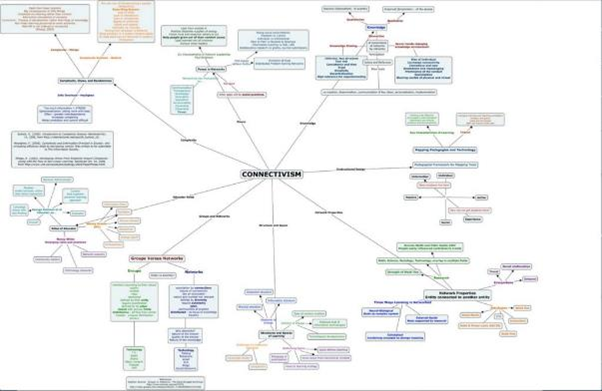Lesson 5 - Theories of Learning
9. Connectivism
9.1. What is Connectivism?
Another epistemological position, connectivism, has emerged in recent years that are particularly relevant to a digital society. Connectivism is still being refined and developed, and it is currently highly controversial, with many critics.
In connectivism it is the collective connections between all the ‘nodes’ in a network that result in new forms of knowledge. According to Siemens (2005), knowledge is created beyond the level of individual human participants, and is constantly shifting and changing. Knowledge in networks is not controlled or created by any formal organization, although organizations can and should ‘plugin’ to this world of constant information flow, and draw meaning from it. Knowledge in connectivism is a chaotic, shifting phenomenon as nodes come and go, and as information flows across networks that themselves are inter-connected with myriad other networks.
The significance of connectivism is that its proponents argue that the Internet changes the essential nature of knowledge. ‘The pipe is more important than the content within the pipe,’ to quote Siemens again. Downes (2007) makes a clear distinction between constructivism and connectivism:
In connectivism, a phrase like “constructing meaning” makes no sense. Connections form naturally, through a process of association, and are not “constructed” through some sort of intentional action. …Hence, in connectivism, there is no real concept of transferring knowledge, making knowledge, or building knowledge. Rather, the activities we undertake when we conduct practices in order to learn are more like growing or developing ourselves and our society in certain (connected) ways.
